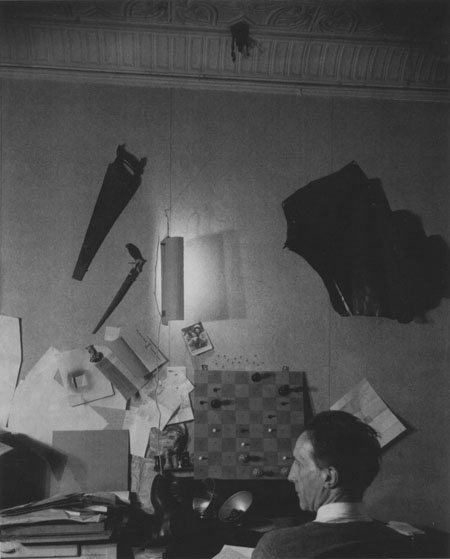
“In [Percy] Rainford’s original photography, Duchamp is seated at a desk, seen in profile with his face slightly overlapping a chessboard propped up against the wall. The chesmen are attached (glued?) to the board to illustrate the endgame developed by French avant-garde poet and playwright Raymond Roussel, who is considered one of Duchamp’s most important influences. [Frederick] Kiesler’s understanding of the importance of Roussel’s work for Duchamp’s creative process is evidenced by the inscription he added on the reverse of fold-out pages, ‘Marcel D.—born 1887—artiste-inventeur‘ and ‘R. Roussel—born 1877—artiste-inventeur,’ with symbols of the black and white kings positioned respictively nevxt to each name. While Kiesler, who was a keen chess player and frequent opponent of Duchamp, was surely familiar with his friend’s feelings about Roussel, Linda Henderson has suggested that the architect’s clear parallel between these two revolutionaries was drawn ‘undoubtedly with Duchamp’s help.’ At the far end of the flap on the left side of Kiesler’s triptych, the phrase ‘Fous, Cavaliers et Rois‘ (‘Fools, Knights and Kings’) is printed, along with small drawings of a jester and a knight. This was an appropriate use of chess characters on Kiesler’s part to summarize the multi-dimensional careers of Duchamp and Roussel.”
(Bradley Bailey, “Passionate Pastimes,” in Marcel Duchamp: The Art of Chess, p. 77)
